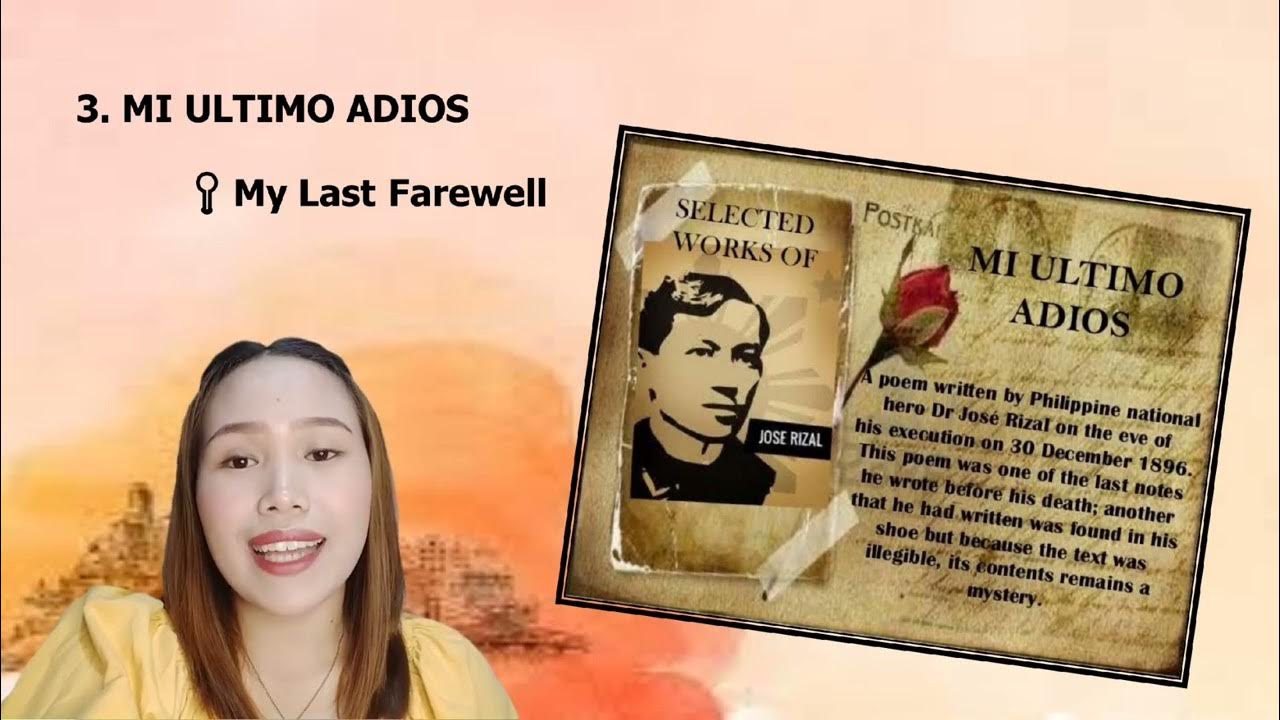Discipline and Ideas in Social Sciences (Q2). The Filipino Thinkers
Summary
TLDRIn this lesson, Teacher Claire introduces Filipino social thinkers and their contributions to society, focusing on figures such as José Rizal, Isabelo de los Reyes, Pedro Paterno, Emilio Jacinto, and Andrés Bonifacio. The lesson explores their works, social ideas, and roles in shaping Philippine history and identity. Through engaging activities and a quiz, students learn about the importance of these thinkers in promoting political and social change. The session encourages students to reflect on the role of social thinkers and relate it to contemporary issues in society.
Takeaways
- 📚 The lesson introduces Filipino social thinkers, focusing on their contributions to society and their significance in the field of social sciences.
- 🧠 José Rizal, a Filipino national hero, was a prominent social thinker who changed his surname from Mercado to Rizal to avoid Spanish colonial targeting.
- ✍️ José Rizal wrote two influential novels, *Noli Me Tangere* and *El Filibusterismo*, which critiqued Spanish colonial rule and explored the possibility of revolution.
- 🎯 Rizal's social ideas emphasized the need for a propaganda campaign to educate Filipinos about their rights and the colonial conditions they faced.
- 🌾 Isabelo de los Reyes, another social thinker, was a labor activist and a founder of the Iglesia Filipina Independiente. He is known as the father of Philippine folklore, labor movement, and socialism.
- 📝 Pedro Paterno was a Filipino politician, poet, and novelist, known for his role in mediating the peace agreement during the Philippine revolution, though his works were often seen as irrational by contemporaries.
- 🧠 Emilio Jacinto, known as the 'Brains of the Katipunan,' played a major role in the Philippine revolution and was the author of the Katipunan's official newspaper and handbook.
- ⚔️ Andrés Bonifacio, one of the founders of the Katipunan, was a revolutionary leader who sought to overthrow Spanish colonial rule. He is considered one of the national heroes of the Philippines.
- 📅 The lesson highlights the importance of studying these social thinkers to understand their contributions to the political, social, and philosophical development of the Philippines.
- ❓ The lesson concludes with an activity asking students to imagine themselves as Filipino thinkers and propose ideas for addressing current social issues.
Q & A
Who is the teacher in the video and what subject does she teach?
-The teacher in the video is Teacher Claire, and she teaches Humanities and Social Science.
What is the first activity introduced by Teacher Claire?
-The first activity is to guess the names of Filipino social thinkers by completing the letters corresponding to their pictures.
Who are the Filipino social thinkers mentioned in the lesson?
-The Filipino social thinkers mentioned are Jose Rizal, Isabella de los Reyes, Pedro Paterno, Emilio Jacinto, and Andres Bonifacio.
Why did Jose Rizal change his surname from Mercado to Rizal?
-Jose Rizal changed his surname to Rizal because Mercado was a common name targeted by Spanish authorities, and he wanted to protect his identity and distance himself from his brother Paciano Mercado, who was wanted by the authorities.
What are the two novels written by Jose Rizal and what do they discuss?
-Jose Rizal wrote *Noli Me Tangere* (1887), which reflected the problems of exploitation in Filipino society under Spanish rule, and *El Filibusterismo* (1891), which examined the possibilities and consequences of revolution.
What is the significance of studying Filipino social thinkers, according to the lesson?
-Studying Filipino social thinkers opens awareness of the various disciplines in social sciences and their contributions to the advancement of society and political thought.
What was one of the major contributions of Isabella de los Reyes?
-Isabella de los Reyes was the founder of the first labor union in the Philippines, the Union Obrera Democratica, and is known as the father of Philippine folklore, the labor movement, and Filipino socialism.
What was Pedro Paterno's role in the Philippine Revolution?
-Pedro Paterno acted as a mediator in the Pact of Biak-na-Bato, which led to a peace agreement between the Spaniards and the Filipinos in 1897.
Who is Emilio Jacinto and what is his significance in the Katipunan?
-Emilio Jacinto was known as the brains of the Katipunan and played a key role in the Philippine Revolution. He wrote the Katipunan's official newspaper, *Kalayaan*, and the handbook *Kartilya ng Katipunan*.
What question does Teacher Claire ask to encourage students to reflect on their role as future Filipino social thinkers?
-Teacher Claire asks, 'If you are given a chance to be a Filipino thinker, what would be the title of your work? Do you think your work will have a relation to the social issues that we are facing now, which is the government? Why?'
Outlines

Этот раздел доступен только подписчикам платных тарифов. Пожалуйста, перейдите на платный тариф для доступа.
Перейти на платный тарифMindmap

Этот раздел доступен только подписчикам платных тарифов. Пожалуйста, перейдите на платный тариф для доступа.
Перейти на платный тарифKeywords

Этот раздел доступен только подписчикам платных тарифов. Пожалуйста, перейдите на платный тариф для доступа.
Перейти на платный тарифHighlights

Этот раздел доступен только подписчикам платных тарифов. Пожалуйста, перейдите на платный тариф для доступа.
Перейти на платный тарифTranscripts

Этот раздел доступен только подписчикам платных тарифов. Пожалуйста, перейдите на платный тариф для доступа.
Перейти на платный тарифПосмотреть больше похожих видео

KALIGIRANG PANGKASAYSAYAN NG PANITIKAN SA PANAHON NG PROPAGANDISTA AT HIMAGSIKAN|ARALIN SA FILIPINO

Cavite Mutiny Short Film GROUP 7 & 8 (Gomburza Execution)

RIZAL AS AN AMERICAN SPONSORED HERO | PART 2

The Period of Enlightenment (1872-1898) Jose Rizal and Marcelo H. del Pilar

Perjalanan Panjang Filipina Menjadi Bangsa yang Merdeka!

Aralin 1: Panahon ng Propaganda at Himagsikan | Unang Markahan
5.0 / 5 (0 votes)
